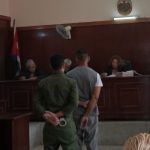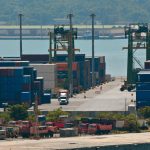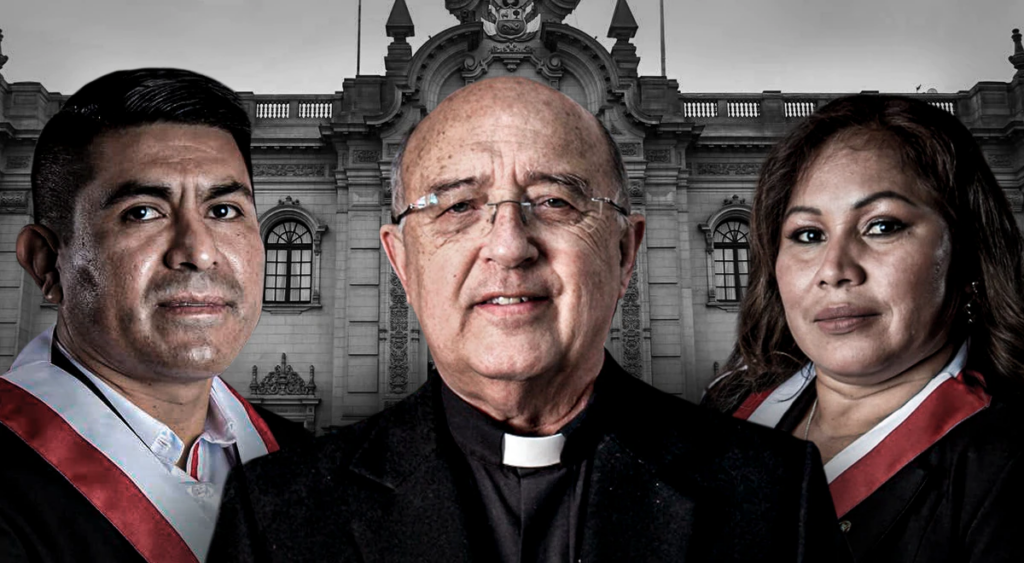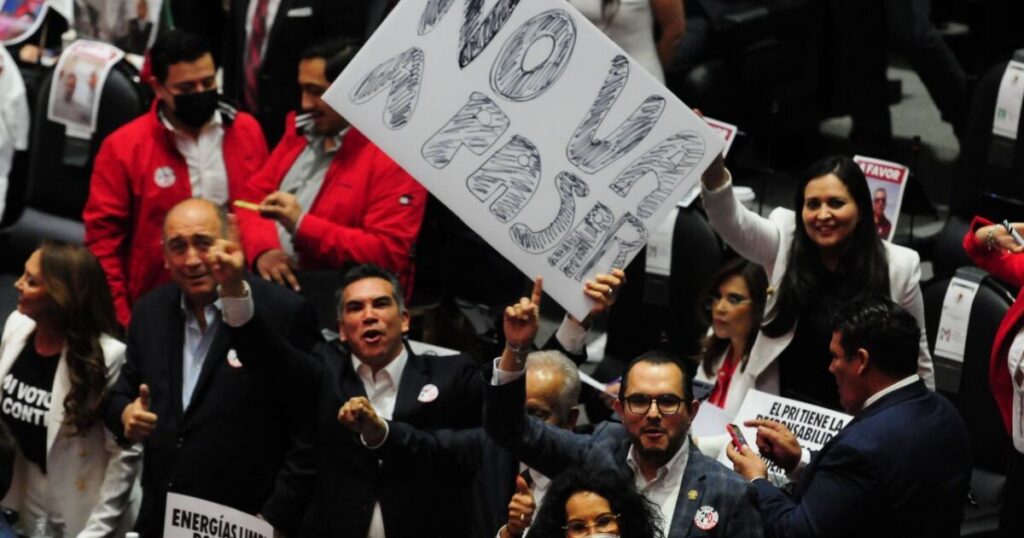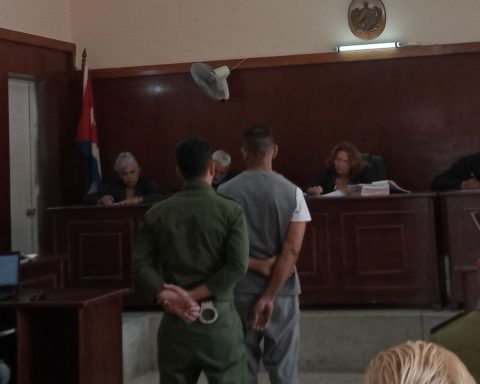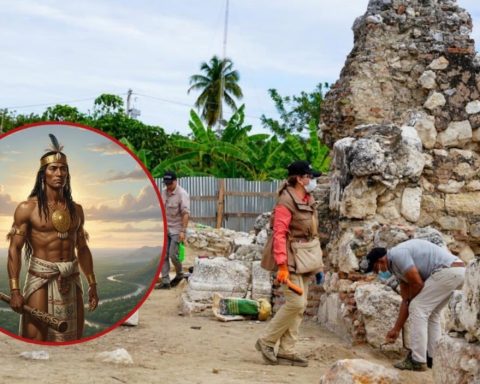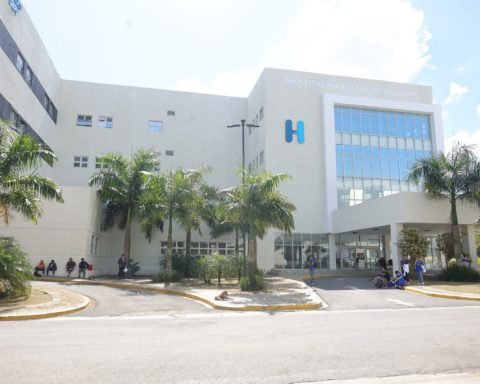“The city has not fallen. Our military forces, our soldiers are still there. They will fight to the end,” said Denys Shmygal, the Ukrainian prime minister, in an interview with the US network ABC.
The prime minister’s remarks come shortly after Moscow’s ultimatum expired, which called on the last Ukrainian soldiers entrenched in a huge Mariupol metallurgical complex to give up the fight and leave before 1:00 p.m. (10:00 GMT).
“All those who have laid down their arms will have the guarantee of saving their lives (…) It is their only chance,” the Russian Defense Ministry said on Telegram.
Russian forces also announced that they had bombed another military factory on the outskirts of kyiv on Sunday, at a time of intensifying attacks around the Ukrainian capital, after the destruction of the flagship of its fleet in the Black Sea.
But Moscow’s attacks are mainly focused on the east and south of the country. The conquest of Mariupol, where the situation is “inhuman” according to the Ukrainian leader Volodymyr Zelensky, would mean an important victory for Moscow.
With 440,000 inhabitants before the war, it represents the last obstacle to guarantee Russia’s control in the maritime strip that goes from the pro-Russian separatist territories of Donbas to the Crimean peninsula, annexed by Moscow in 2014.
Russia claims to control almost the entire city, something that Shmygal denied during the interview with ABC.
The Ukrainian president pointed out that there were only “two options”: the supply from Western countries of “all the necessary weapons” to break the long siege of the city or “the path of negotiation” in which “the role of the allies it must be equally decisive.”
Zelensky said in an interview with the US channel CNN that he invited French President Emmanuel Macron to visit Ukraine.
The purpose of the visit would be to verify with his own eyes that the Russian forces are committing “genocide”, a term that the French leader has refused to use until now, the Ukrainian leader explained.
PUTIN “THINKS HE WILL WIN THE WAR”
Pope Francis called this Sunday to “listen to the cry of peace” in this “Easter of war”, and alluded to a “martyred Ukraine”, in his blessing “urbi et orbi” before 50,000 faithful in Saint Peter’s Square in Rome .
On the other hand, according to Austrian Chancellor Karl Nehammer, who met with Vladimir Putin nearly a week ago, the Russian president thinks he has won the war triggered by his February 24 invasion of Ukraine.
Shmygal, the Ukrainian prime minister, rejected these claims by the Russian leader, recalling that “not a single big city” in Ukraine had fallen.
For his part, the Italian head of government Mario Draghi lamented in an interview with the newspaper Il Corriere della Sera the apparent ineffectiveness of the “dialogue” with Putin, noting that it has not prevented the “horror” from continuing in Ukraine.
The creation of humanitarian corridors in some areas remains, for example, a puzzle. The Ukrainian authorities reported this Sunday that in the absence of an agreement with the Russians for a ceasefire they will suspend the evacuation of civilians from the east of the country for the day.
“This morning, we were unable to negotiate a ceasefire on the evacuation routes with the occupants. [rusos]. For this reason, unfortunately, we are not going to open humanitarian corridors today,” Deputy Prime Minister Irina Vereshchuk wrote on Telegram.
The leader indicated that the authorities are doing everything possible to reopen the humanitarian corridors “as soon as possible.”
Vereshchuk also demanded the opening of a road to evacuate wounded soldiers in the city of Mariupol.
RETARGET THE CAMPAIGN
Although it has reoriented its military campaign to the east and south, Russia has bombed the capital again in recent days after the sinking of its flagship in the Black Sea, the cruiser “Moskva”, which Ukraine claims to have hit with Neptune anti-ship missiles. .
Moscow denies this version and attributes the sinking to a fire.
The attack this Sunday on a military factory near kyiv was preceded on Friday by the bombing of a factory also near the capital where the Neptune missiles were produced.
In the east, where the next major battle of this war is expected, a series of attacks left five dead and 20 wounded in Kharkov, the country’s second largest city.
“You know when a dog hears a ‘boom’ and his whole body starts shaking even though the noise is far away? Now I am like this,” said Zinaida Nestrizhenko, 69, huddled by a Kharkiv road with her cat.
For its part, the Russian Defense Ministry said on Sunday that “high-precision missiles destroyed fuel and ammunition depots” in Barvinkove (Izum region) and Dobropillia (Donetsk region), also in the east.
And around Lugansk, “the constant shelling of the region continues,” its Ukrainian governor, Sergei Gaidai, said on Sunday.
In the town of Zolote “they deliberately attacked a five-story building (…) two people died and five were injured,” he added.
Although not directly involved in the conflict, NATO members have provided extensive arms support to Ukraine, which has increased as the war progresses.
Russia warned in a diplomatic note to the United States against sending “more sensitive” weapons to Ukraine, which put “fuel on the fire” and could cause “unforeseeable consequences,” according to The Washington Post.
Some 4.8 million people have fled Ukraine since February 24, according to the UN, which says that 40,200 more refugees left their country in the last 24 hours.







